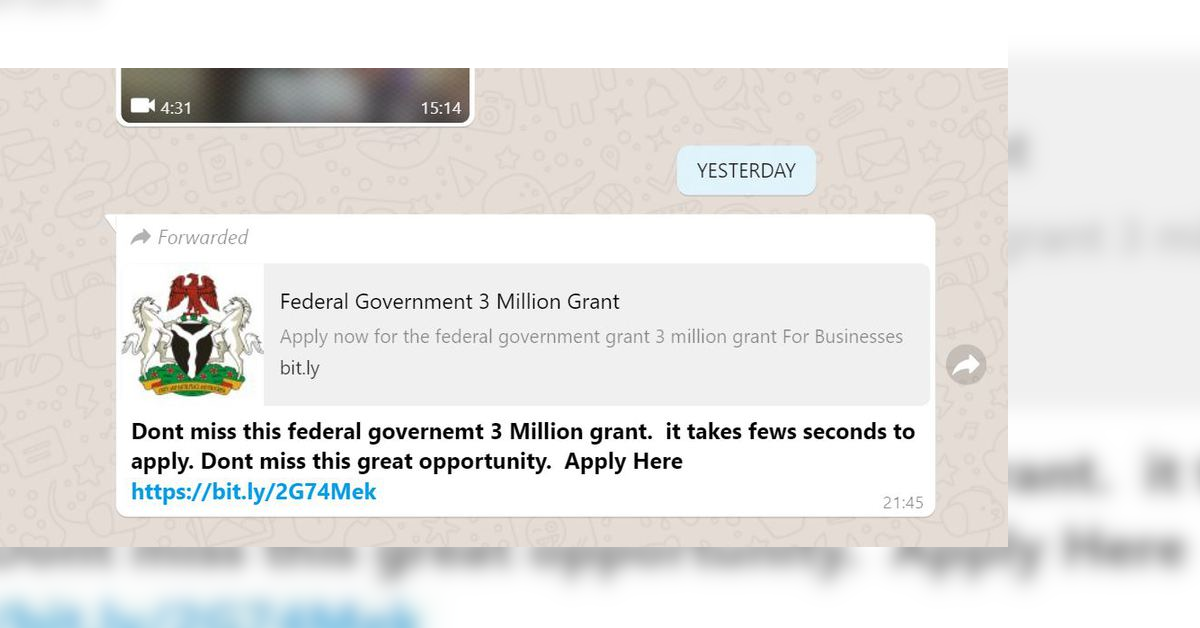“Don't miss this federal governemt 3 Million grant. it takes fews seconds to apply,” the poorly written message reads. “Don't miss this great opportunity. Apply Here.”
It then links to a webpage, now deleted, which read: “WE CONGRATULATE YOU! We chose you to give you a chance to be a part to benefit from the 75 Billion federal government grant.” It then asked “Why do you want to apply for the grant?” and presented three options: “to start a business”, “to pay my bills” and “to support my existing business”.
Is this offer legit? We checked.

String of suspicious links
Any of the options on the page led to another webpage that asked how much money users wanted to apply for, giving options ranging from N200,000 to N2 million.
The next webpage said: “Congratulations, we have received and reviewed your application and you have been successfully picked to have access to the grant!”
To get the money, users were then told to share the message. “Send this to 12 Whatsapp Groups or friends so they can also have access to this great opportunity to start something in life! After the sharing, You will be asked to activate this free service for 28 days.”
Though all the webpages bore Nigeria’s coat of arms, their URLs were not in any way linked to Nigeria’s federal government.
‘Please beware!’
On 27 October Nigeria’s ministry of finance tweeted a warning that the grant offer was a scam.
It has come to our attention that a link is being shared via social media requesting for applications for a FG 3 Million grant. The general public should note that this is a SCAM. Any requests for applications are only via official channels & websites. Pls beware! #FinMinNigeria pic.twitter.com/C0Z2EcUbQF
— Ministry of Finance, Budget and National Planning (@FinMinNigeria) October 27, 2020
“It has come to our attention that a link is being shared via social media requesting for applications for a FG 3 Million grant,” the ministry said. “The general public should note that this is a SCAM. Any requests for applications are only via official channels & websites. Pls beware! #FinMinNigeria.”
The warning has also been shared on Facebook. – Allwell Okpi
Republish our content for free
For publishers: what to do if your post is rated false
A fact-checker has rated your Facebook or Instagram post as “false”, “altered”, “partly false” or “missing context”. This could have serious consequences. What do you do?
Click on our guide for the steps you should follow.
Publishers guideAfrica Check teams up with Facebook
Africa Check is a partner in Meta's third-party fact-checking programme to help stop the spread of false information on social media.
The content we rate as “false” will be downgraded on Facebook and Instagram. This means fewer people will see it.
You can also help identify false information on Facebook. This guide explains how.


Add new comment